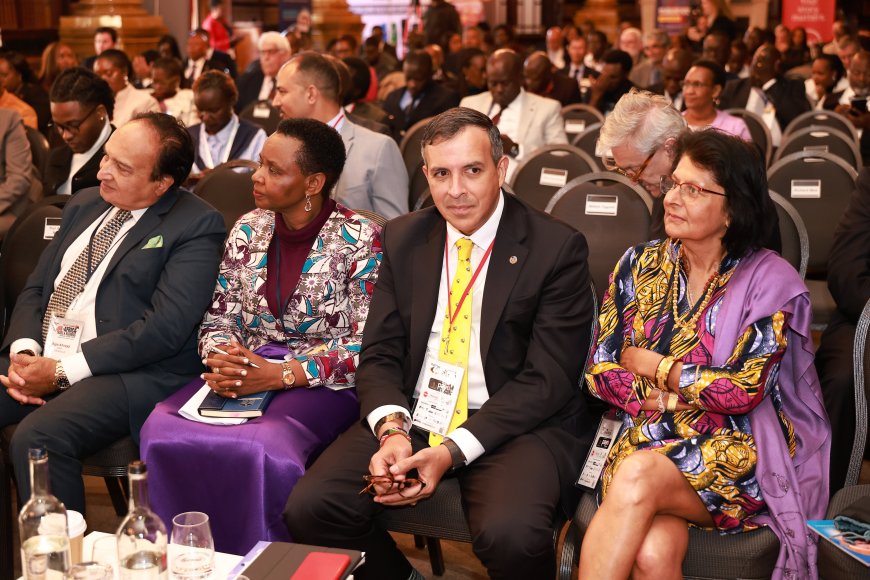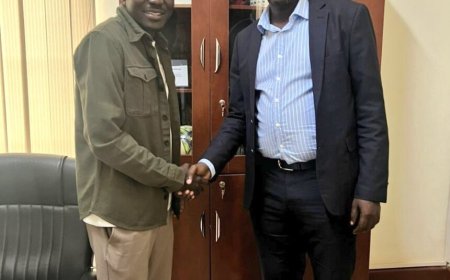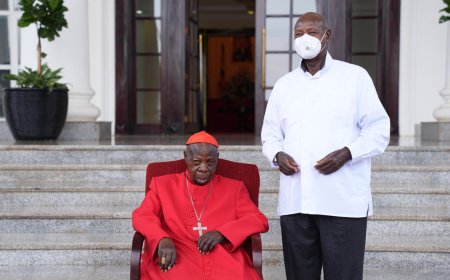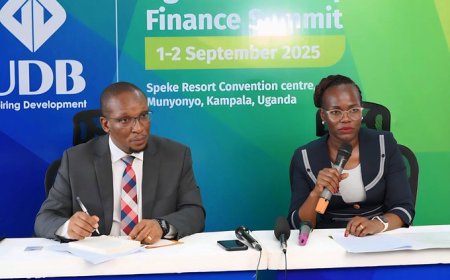Financial Modernisation and Tax Reforms at the Heart of Uganda’s Investment Agenda
In his address, Prof. Nuwagaba emphasized that Uganda is not only strengthening its monetary and financial systems but also strategically opening new channels for private capital inflows. He noted that the Bank of Uganda is working to enhance financial stability while at the same time creating a predictable investment environment for both domestic and foreign investors.

At the 15th UK-Africa Summit, Prof. Augustus Nuwagaba, Deputy Governor of the Bank of Uganda, positioned Uganda as a country ready for sustainable investment, underpinned by financial modernization, macroeconomic resilience, and a forward-looking regulatory framework.
In his address, Prof. Nuwagaba emphasized that Uganda is not only strengthening its monetary and financial systems but also strategically opening new channels for private capital inflows. He noted that the Bank of Uganda is working to enhance financial stability while at the same time creating a predictable investment environment for both domestic and foreign investors.
Strategic Investment Opportunities
The Deputy Governor outlined priority areas for investment including oil and gas, agro-industrial processing, infrastructure development, and climate-aligned sectors such as renewable energy. These, he said, are supported by ongoing policy reforms and institutional stability designed to give investors long-term confidence.
He further highlighted agriculture, manufacturing, and renewable energy as key areas where Uganda is seeking to attract environmentally responsible investors.
“We must incorporate ESG standards and provide green investment incentives to ensure that Uganda not only grows economically but also safeguards its environment,” he noted.
Tax and Policy Reforms
Prof. Nuwagaba stressed the importance of creating a competitive tax environment. He called for a reduction of harmful taxes and uncertainties, simplification of tax payment processes, and provision of targeted tax incentives for investors in priority sectors. According to him, this will lower operational costs, promote compliance, and stimulate growth in critical industries.
Enhancing Regulatory Efficiency
Turning to regulatory reforms, Prof. Nuwagaba called for an overhaul of bureaucratic bottlenecks that discourage investment. He emphasized the need to simplify procedures for licensing, permits, and approvals by strengthening the one-stop investment centre under the Uganda Investment Authority (UIA).

He also championed the liberalization of capital and financial accounts to enable the free movement of private capital, alongside allowing foreign ownership in strategic enterprises. Transparency, fair competition, and the elimination of monopolistic practices, he argued, are central to building investor trust.
A Call for Investor Confidence
The Deputy Governor reaffirmed that Uganda’s economic infrastructure—ranging from fiscal reforms to institutional frameworks—is designed to guarantee predictability for investors. By aligning with global standards and embracing sustainable development, Uganda aims to position itself as a competitive hub for responsible capital.

“Uganda is open for business, and our message is clear: we are committed to policy stability, financial modernization, and creating a conducive investment environment where both local and international investors can thrive,” Prof. Nuwagaba concluded.




























































































































